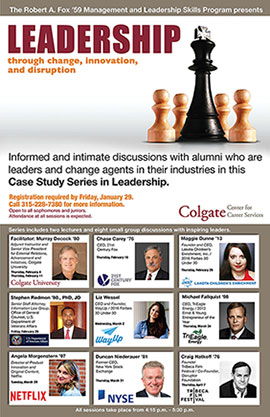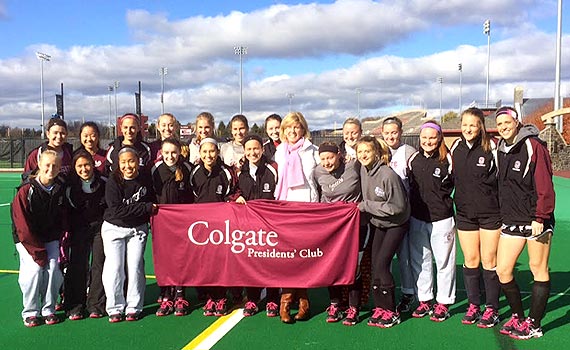
Greg Casagrande ’85 celebrates the Colgate Day of Impact with inspiring women micro-entrepreneurs on Guadalcanal.
As part of the Colgate Day of Impact, the Presidents’ Club and the Common Good Network are pleased to present the first-ever Colgate Impact Award to Greg Casagrande ’85. The Colgate Impact award recognizes a member of the Colgate community who has shown exemplary leadership in working toward the Common Good.
Greg is the Founder of SPBD Microfinance Network, the leading microfinance institution in the South Pacific. Through SPBD, Greg has provided over $60million in micro-enterprise financing plus small business training to over 40,000 poor but aspiring women micro-entrepreneurs in Samoa, Tonga, Fiji and the Solomons Islands. Greg is also the founder of MicroDreams, a microfinance acceleration fund and Transformative Ventures LLC, a Microfinance advisory company.
“I am especially proud that we have found a way to work directly with poor but aspiring women to provide them with meaningful economic opportunity so that they can grab onto a rung of the economic ladder and begin to pull themselves and their families permanently out of poverty. I’m equally proud that we have also developed a model that enables us to replicate and scale these efforts so that we can provide the proverbial “hand-up” and make a positive impact for tens of thousands of families,” Greg said.
Greg has served as a director on several microfinance-industry boards including: the International Association of Microfinance Investors (of NY), Microfinance Pasifika (of Fiji), and Planet Finance (of Paris). He also serves as a Board member for Plebys (of Irvine, CA) a “Base of the Pyramid” investment fund and Water Health International (of NY), an affordable clean drinking water solution marketed in India and West Africa.
Greg was named “Person of the Year” in the Pacific Island nation of Samoa for his work in empowering poor families in that country, was honored to be a United Nations Global Advisor for Microfinance and was awarded the “Singapore Global Social Entrepreneur” Prize.
“When I first learned about the Impact Award, I immediately thought of Greg,” said Amy Everett DiSibio ’86 P’18, Vice Chair of the Presidents’ Club. “Greg has made a global impact through his work and has inspired so many people to pursue a life of service. He gives back generously, not only to Colgate, but throughout the world and he exemplifies both leadership and impact, which are key values of the Colgate Presidents’ Club.”
Greg also promotes hi-tech entrepreneurship and was a founding director of the Ice Angels, Australasia’s largest angel investor group and serves as Chairman/Director of three New Zealand software firms: Biomatters Ltd, Cumulo9 Ltd and English-To-Go Ltd.
Greg’s experience at Colgate inspired him to pursue a life of service. Greg worked with homeless men in DC during his Freshman January term, worked as an aide to a member of the British Parliament in London in his Junior year and remembers fondly engaging in deep philosophical conversation with Professor Hunt Terrell in an International Ethics course in his Senior year.
“Colgate gave me the confidence to think for myself and to have the courage to follow my own path and definition of success. For that and for the enduring lifelong friendships that I made at Colgate, I am very grateful.”
Greg will receive his award at a future on-campus event.










